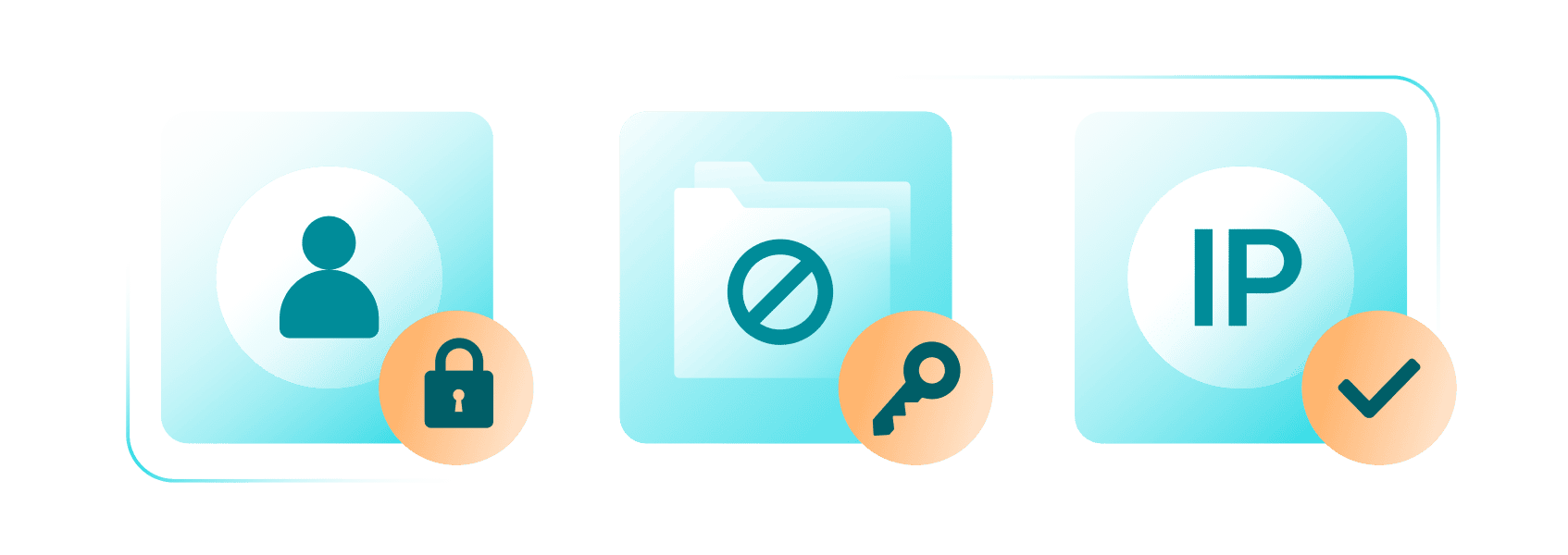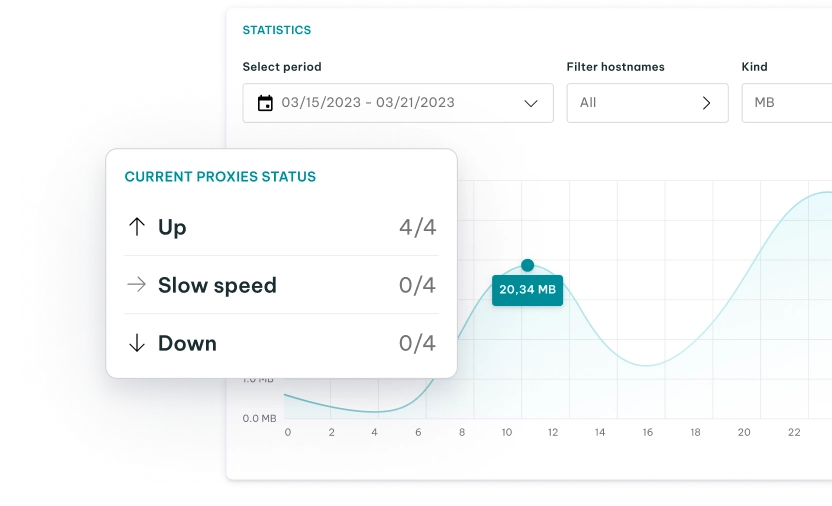IP Scrambler: What It Is and How It Works
Proxy fundamentals

Simona Lamsodyte
An IP scrambler is a somewhat outdated term for a piece of software that hides someone’s IP address. Technically, such a thing does not exist as a static IP address is assigned to a device by an Internet Service Provider (or through other means), so it largely remains unchanging over time.
There are ways to hide your IP address, however, and to achieve the same goal an IP scrambler would. One of the most popular and effective ways is to use rotating residential proxies . They let you change IP addresses with each network request you send, essentially making your true identity invisible.
What Is an IP Scrambler?
An IP address scrambler would be a device or piece of software that scrambles your IP address. Such a thing does not exist, however, as sending a legitimate IP address is required to establish a connection.
There are ways to manipulate IP addresses, however. From a virtual private network to residential proxies, there are methods that allow users to change their perceived IP address.
While they don’t scramble an IP address per se, these methods perform IP masking, which makes your true identity unknown. If that’s the goal, using these technologies is just as good as an IP address scrambler.
Reasons for Scrambling Your IP Address
Most IP scrambler usage reasons would rest upon privacy and security. IP addresses provide a lot of information about the user, so those more conscious about their online privacy often look to getting an IP scrambler. There are other benefits to changing IP addresses, however, so tools like rotating residential proxies may work even better than an IP scrambler.

Privacy Protection
The most common reason for wanting an IP scrambler is privacy. As mentioned earlier, IP addresses provide lots of data, such as geolocation, ISP, and several other pieces of information. While they are not strictly personally identifiable data, by getting information from other sources, some companies may be capable of tracking users.
Residential proxies can serve the same goal in this case as an IP scrambler. Even if you get shared IP addresses, it will still be one of a different device, potentially on a completely different end of the world. So, tracking your real location and device will be nearly impossible.
Using residential proxies will also scramble data collection efforts. While you may perform actions as if you were using your real device, your location and device will be different. Most residential proxies will also constantly change your IP, so the data collected will be completely scrambled, making it useless.
Accessing Restricted Content
Since most think of an IP scrambler as a tool that changes IP addresses, it can also be useful for accessing geo-restricted content. In fact, if the tool worked as the name implies, that is, scrambled IP addresses, such a use case would be impossible.
Luckily, if you use a VPN or any type of proxy server, you get real IP addresses with specific locations. You may need to avoid datacenter proxies, however, as they get their IPs from business-owned servers.
While they still don’t leak your data, datacenter proxies are easier to detect, so you may still be unable to watch geo-restricted content. You’re better off getting a residential IP address, which will be much harder to detect.
Evading IP Bans
IP bans are a frequent way to prevent access to a website. While it usually affects processes like web scraping, anyone can get IP banned. If that’s the case, you’ll need to switch it – your best option is a rotating proxy network.
A rotating proxy server changes IPs on every web request or at set time intervals. Even if one IP gets banned, all you need to do is send another web request, and your new IP will let you access all content as if nothing had happened.
Using a rotating proxy network is your best option when compared to something like Tor browser or VPNs. VPNs are a bit limited in their IP pool while Tor browser is extremely slow in comparison. Rotating residential proxies will give you both a virtually unlimited IP pool and decent streaming speeds.
Methods to Scramble IP Addresses
We’ve gone through a few popular options for scrambling or changing IP addresses. All of them are legitimate ways, with some being better than others at specific use cases:
- Tor
One of the most secure and private ways to change IPs. Tor sends your requests through multiple encrypted relays, making it nearly impossible to track you. On the other hand, it’s the slowest option.
- A proxy server pool
One of the best ways to change IPs for both business use cases (such as web scraping) and personal use. There are plenty of different proxies with various benefits. For example, datacenter proxies are extremely fast and stable, but a little easier to detect. A rotating proxy server is usually acquired from residential proxies, which are a little less stable than datacenter proxies, but are virtually impossible to detect and provide decent speeds.
- VPNs
A great option for personal use. VPNs are the easiest to use, provide good stability and speeds, and some IP choice. They’re also usually pretty cheap, making them accessible to nearly everyone.
There are plenty of other options you can use to change IPs, but the three above are the most common and effective. Pick one that best matches your needs and you’ll have the best IP scrambler you can get.
If you pick the second option, however, we caution against using free proxies. Like VPNs, proxies cost money to maintain. Free proxies can only cost nothing if the provider somehow makes back their investment. As such, most free proxies will be slow and unstable at best. But usually free proxies will either have tracking, malware, or something else that will make the provider money.


